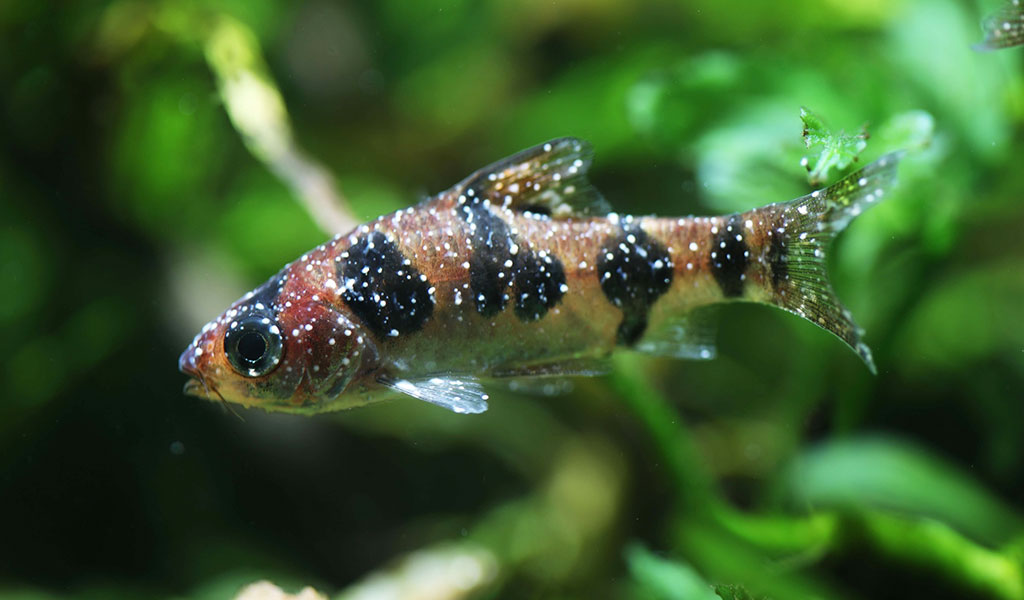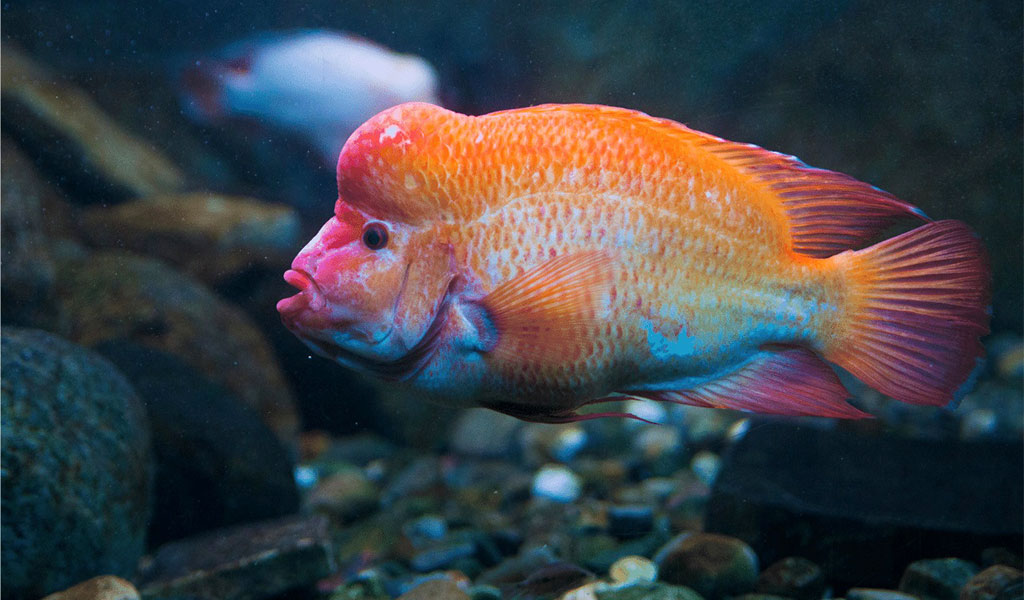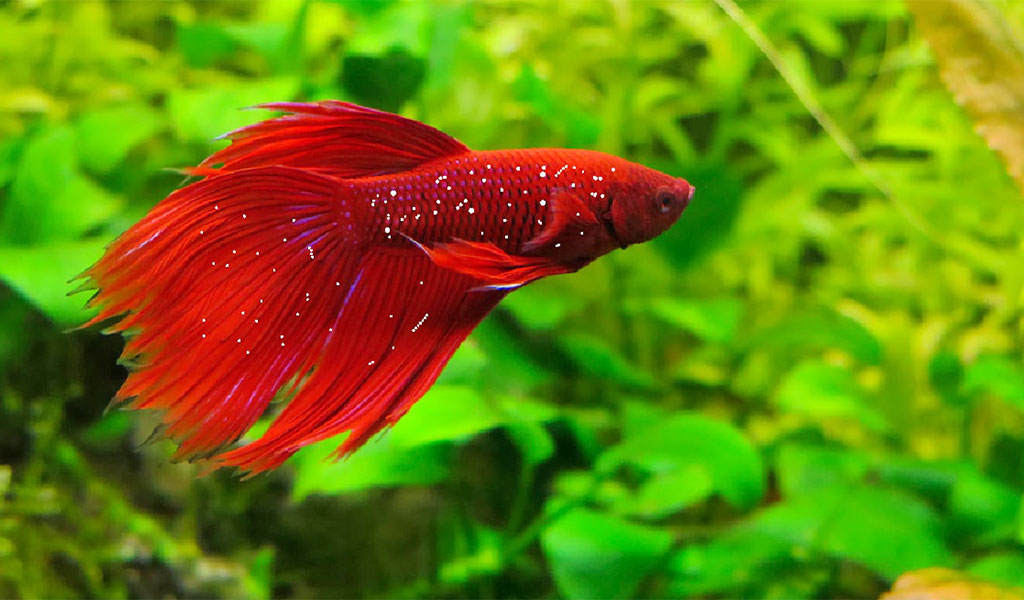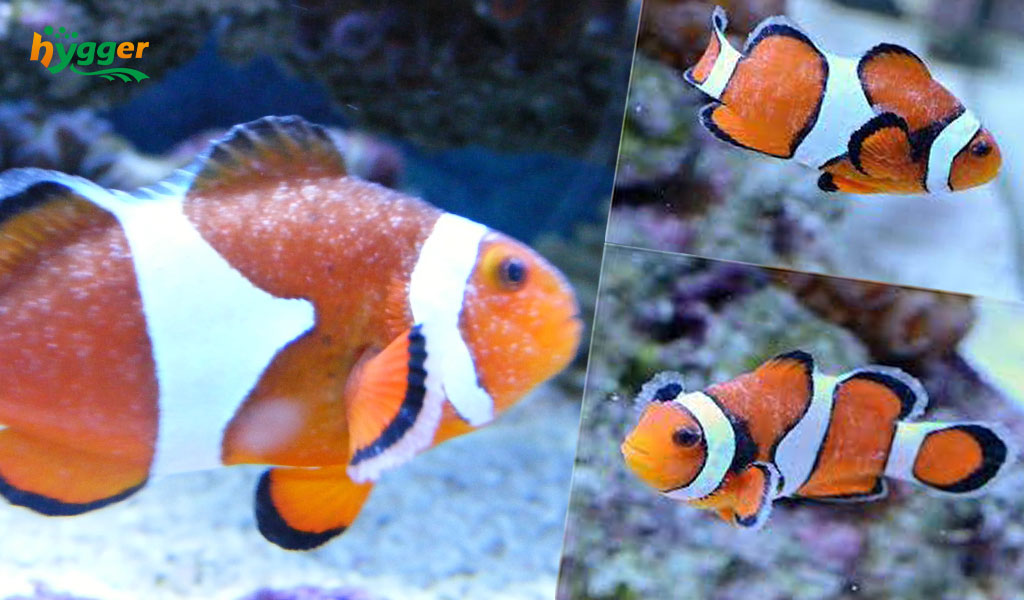Ick is a typical fish disease, which is highly contagious and caused by parasitic infection. Ick affects various ornamental fish species. It can cause significant stress and harm to fish, leading to serious health issues if left untreated. Recognizing the signs of ick on fish and implementing effective treatments is crucial for the survival of ornamental fish in home aquariums. So in this guide, we will explore the treatment options and strategies for combating ick fish disease in different types of ornamental fish.
Ick and your aquarium fish
What is ick?
Fish ick is also famous for ich, ichthyophthiriasis, or white spot disease. It is a result of parasite infection, caused by Ichthyophthirius multifiliis. Commonly, the life cycle of the Ichthyophthirius multifiliis parasite involves three stages: trophont, tomont, and theront. Trophonts are in the feeding stage and attach themselves to the fish, causing irritation and damage to the skin. After feeding, they drop off the fish and encyst into tomonts, which are protective capsules. Inside the tomonts, the parasites reproduce asexually, creating numerous theronts. Theronts are in the free-swimming stage and emerge from the tomonts, seeking new hosts to infect.
Ick primarily affects freshwater fish, while it also affects some marine fish, like clownfish. As one kind of highly contagious disease, it can spread rapidly throughout an aquarium if not addressed promptly. Furthermore, if left untreated, severe infestations can lead to secondary infections and even death.
Commonly, once fish suffer from Ick disease, they will show some symptoms. For instance, white spots resembling grains of salt or sugar on the fish’s body, fins, and gills. Infected fish may also exhibit symptoms, including flashing (rubbing against objects in the tank), increased mucus production, rapid breathing, loss of appetite, lethargy, etc.

How do fish get ick disease?
Fish get ick disease through various means. But the primary mean is the transmission through parasite infection. In this part, we will cover some common causes that fish will get ick disease.
- Contaminated water: Ichthyophthirius multifiliis can survive in many freshwater environments, including rivers, lakes, and ponds. If fish are introduced to a new aquarium or body of water that already contains the parasite, they will be infected.
- Contaminated equipment: The ick fish disease parasite can also be transmitted through contaminated equipment, such as nets, siphons, or decorations. If these items are not properly cleaned and sanitized after being used with infected fish or in an infected aquarium, they can introduce the parasite to new environments.
- Infected fish: Fish carrying the ich parasite can spread it to healthy fish through direct contact. This can happen when fish are housed together in the same aquarium or when new fish are added to an existing population without proper quarantine procedures.
- Stress and weakened immunity: Generally, fish that are stressed or have weakened immune systems are more susceptible to infections, like ick disease. Poor water quality, improper nutrition, overcrowding, temperature fluctuations, or transportation can weaken fish and make them more vulnerable to diseases.
Treat cichlids with Ick
Before getting into specific treatments for cichlids suffering from ick disease, it is recommended to research and understand their needs. Because every cichlid species may have different requirements and sensitivities. Given below are some common steps to treat cichlids’ ick fish disease.
Quarantine
To decrease the risk of infection and prevent the spread of parasites, it is better to quarantine the infected cichlids in another fish tank. Also, it allows for more focused treatment.

Increase water temperature
Raise the water temperature to around 86-88°F (30-31°C). Higher temperatures speed up the life cycle of the ich parasite, which helps to kill off the free-swimming stage (theronts). However, it’s crucial to consider the tolerance of water temp for specific cichlid species. Because some may be more sensitive than others, in this case, a thermometer is helpful to monitor real-time water temp.
Medication
The available options include medications containing active ingredients, such as malachite green, formalin, or copper. Be cautious with copper-based medications, as some cichlid species may be more sensitive to copper, especially those from the African Rift Lakes, such as Malawi Cichlids, Tanganyika Cichlids, and Victorian Cichlids. If you are in a dilemma of choosing a proper medication, you can research and consult with an aquatic veterinarian or experienced fishkeeper.
Observation and retreatment
Monitor the cichlids closely during the treatment period. If any visible signs of ich persist or reappear after completing the initial treatment, it may be necessary to repeat the medication process.
Cure Ick in betta fish
Aside from cichlids, this segment will focus on the treatments for betta fish ick.
Quarantine
If possible, move the infected betta fish to a quarantine tank. This helps prevent the spread of the parasites. Then healthy fish can keep free from ick infection.
Increase temperature
Higher temperatures accelerate the life cycle of the ich parasite. Hence, it is feasible to raise the water temperature to around 86-88°F (30-31°C). However, as bettas can become stressed at high temperatures, it is important to consider the betta fish’s tolerance to elevated temperatures.

Medication
Actually, you can treat affected betta fish with medications that contain active ingredients. For example, malachite green or methylene blue. Be sure to carefully measure and administer the medication according to the recommended guidelines.
Stress reduction
Provide a stress-free environment for the betta fish. Also, to make the fish feel secure, make sure the tank is adequately decorated with plants and hiding spots. Furthermore, maintain a consistent feeding schedule and offer a nutritious diet to support the fish’s immune system. Minimize any sudden changes in water parameters or tank conditions.
How to treat Ick in a reef tank
Actually, treating fish ick (ichthyophthiriasis) in a reef tank can be challenging due to the sensitive ecosystem and the potential impact on corals and invertebrates. Here are some pointers about treating ich in a reef tank.
Quarantine infected fish
Ick disease is highly contagious. To decrease the risk of infection in healthy fish, you’d better move the infected fish to another tank to cure.
Increase temperature cautiously
Increasing the temperature in a reef tank can be risky because of the sensitivity of corals and invertebrates. However, slightly raising the temperature to the upper end of the acceptable range for the inhabitants can help speed up the life cycle of the ich parasite. Just make adjustments according to species-specific temperature tolerances.
Medication
Some medications are not safe for corals and other invertebrates, hence, treating ick in a reef tank can be challenging. For instance, copper-based medications can harm corals and invertebrates, Acropora corals, Xenia corals, Torch corals, Peppermint shrimp, Christmas tree worms, and Carpet anemones for example. Therefore, it is crucial to select a medication that is reef-safe. Medications containing active ingredients, such as formalin or malachite green, are generally considered safer for corals and invertebrates.
Natural methods
In some cases, utilizing natural methods to combat ich in a reef tank can be the first choice. For example, increasing water flow and oxygenation, maintaining optimal water parameters, and providing a stress-free environment can help boost the fish’s immune system and aid in their recovery. Some aquarists also introduce cleaner organisms, such as cleaner shrimp or cleaner wrasses, which can help control the parasite population by picking off the ich cysts from the infected fish.

Treat Ick on clownfish
To treat ich on clownfish, you can follow these steps:
Quarantine
Quarantine the infected fish is also necessary. Move the infected clownfish to a separate quarantine tank. This helps prevent the spread of the parasite to other fish and allows for focused treatment.
Increase temperature
Higher temperatures accelerate the life cycle of the ich parasite. However, high temperatures will cause stress on clownfish. Generally, you can raise the water temperature to around 86-88°F (30-31°C).
Medication
Medications containing active ingredients are excellent options, such as copper, malachite green, or formalin. Follow the instructions provided by the manufacturer for dosage and treatment duration. It is important to carefully measure and administer the medication according to the recommended guidelines.
Water quality
Maintain excellent water quality in the quarantine tank. Perform regular water changes to remove toxins and waste products. Monitor ammonia, nitrite, and nitrate levels and ensure the filtration system is functioning properly. Clean and rinse the filter media regularly, but avoid excessive cleaning that might disturb the beneficial bacteria population.
Stress reduction
Provide a stress-free environment for the clownfish. Ensure the tank is adequately decorated with suitable hiding spots and provide a well-balanced diet to support the fish’s immune system. Minimize any sudden changes in water parameters or tank conditions.
Can humans get ick from fish
To be honest, humans cannot get ick (ichthyophthiriasis) directly from fish. Ick is caused by a specific parasite called Ichthyophthirius multifiliis, which primarily affects freshwater and marine fish. The life cycle and biology of the ick parasite are specific to fish species and their environment.
While humans cannot contract ick from fish, it’s still essential to practice good hygiene when handling aquarium water or fish. Some fish diseases can be transmitted to humans indirectly through contaminated water or improper handling. It’s advisable to wash hands thoroughly with soap and water after coming into contact with aquarium water or fish to reduce the risk of any potential infections or diseases.
Final words
Aside from all treatments mentioned above, here are some tips. During the treatment period, you’d better remove any activated carbon from the filtration system. Because it can absorb medications and reduce their effectiveness. Moreover, be cautious when using medications, as some fish species, particularly scaleless or sensitive ones, may be more susceptible to their side effects.
Prevention is always better than treatment for ick on fish. So maintaining a clean and stress-free environment, along with proper quarantine procedures, can significantly reduce the risk of ick fish disease and other diseases.
